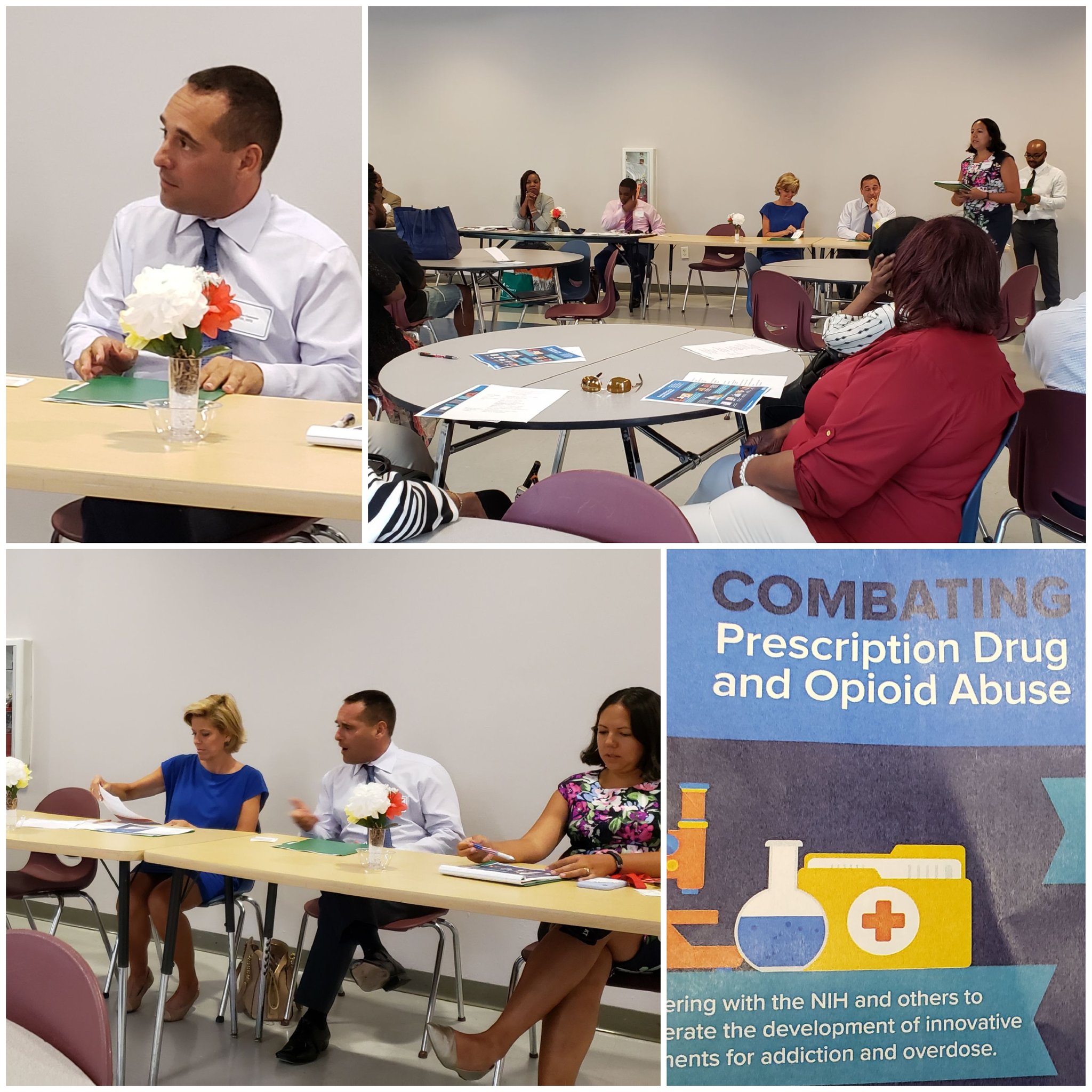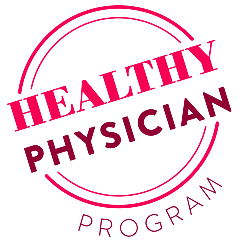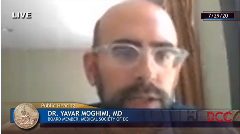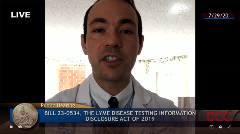Opioid Policies

Much like the rest of the United States, residents of the District of Columbia are struggling with substance use disorder (SUD) rate increases and high rates of opioid-related deaths. Unfortunately, these are multi-faceted issues that require year-long initiatives and systematic programs to address the myriad causes of addiction.
MSDC stands as a partner to the District government and private entities to help arrest the rates of opioid and substance abuse in the District. Through our advocacy for better prescribing practices, education on addiction, and even helping our own community through our Physician Health Program, MSDC is working to make DC a leader in reducing SUD, OUD, and addiction.
On a related note, MSDC is passionate about helping patients make prescriptions and medication more affordable. Whether expanding access to biosimilars or advocating for more affordable co-pays, MSDC wants to help our patients afford the medications they need.
MSDC Statement and Testimony on Opioid and Prescription Issues
25th Council information coming soon
MSDC Leaders Testify Before Board of Medicine and Council
Yesterday, MSDC leaders spoke out on myriad topics before the District government as part of the Society's mission to make DC the best place to practice medicine.
 MSDC President J. Desiree Pineda, MD, FACP, presented to the monthly DC Board of Medicine meeting briefly on the new Healthy Physician Program. The program, to launch next week, provides professional and peer support services for physicians who are experiencing moral injury or need a colleague to speak with during these uncertain times. Dr. Pineda gave the Board an update and reinforced the need for the Board to collect and share good data as part of the license renewal process. MSDC seeks to work with DC Health to study workforce survey data to see how the COVID-19 pandemic is impacting physician wellbeing.
MSDC President J. Desiree Pineda, MD, FACP, presented to the monthly DC Board of Medicine meeting briefly on the new Healthy Physician Program. The program, to launch next week, provides professional and peer support services for physicians who are experiencing moral injury or need a colleague to speak with during these uncertain times. Dr. Pineda gave the Board an update and reinforced the need for the Board to collect and share good data as part of the license renewal process. MSDC seeks to work with DC Health to study workforce survey data to see how the COVID-19 pandemic is impacting physician wellbeing.
 Also yesterday, two MSDC leaders testified before the Committee on Health on five separate bills. MSDC Board member and psychiatrist Yavar Moghimi, MD testified on B23-543, the Suicide Prevention Continuing Education Amendment Act of 2019. Dr. Moghimi testified that MSDC is concerned with the high rate of suicide in America, and referenced the higher-than-average suicide rate among medical professionals versus the entire population. However, Dr. Moghimi shared that the medical licensure process is a process designed to indicate who is qualified to practice medicine in the District, not who is most knowledgeable, and mandatory content matter across all specialties (even those who do not interact with patients) is counterproductive. Instead, on behalf of MSDC, Dr. Moghimi offered to work with DC Health and the private sector to educate the physician community on signs of suicide risk.
Also yesterday, two MSDC leaders testified before the Committee on Health on five separate bills. MSDC Board member and psychiatrist Yavar Moghimi, MD testified on B23-543, the Suicide Prevention Continuing Education Amendment Act of 2019. Dr. Moghimi testified that MSDC is concerned with the high rate of suicide in America, and referenced the higher-than-average suicide rate among medical professionals versus the entire population. However, Dr. Moghimi shared that the medical licensure process is a process designed to indicate who is qualified to practice medicine in the District, not who is most knowledgeable, and mandatory content matter across all specialties (even those who do not interact with patients) is counterproductive. Instead, on behalf of MSDC, Dr. Moghimi offered to work with DC Health and the private sector to educate the physician community on signs of suicide risk.
 Samuel Kareff, MD, the Chair of MSDC's advocacy committee, testified on four other bills before the Committee: the Certificate of Stillbirth Amendment Act, the Lyme Disease Testing Information Disclosure Act, the Opioid Labeling Amendment Act, and the SMA Screening Act. Dr. Kareff provided a medical perspective on all four bills. He expressed MSDC's support for the Certificate of Sillbirth Act and the Opioid Labeling bill. He shared some concerns on the Lyme disease bill, as it would mandate a scripted message providers and health facilities must give a patient after a Lyme disease test. He also expressed support for the SMA Screening Act but shared the American College of Obstetricians and Gynecologists (ACOG) guidance on screening for SMA.
Samuel Kareff, MD, the Chair of MSDC's advocacy committee, testified on four other bills before the Committee: the Certificate of Stillbirth Amendment Act, the Lyme Disease Testing Information Disclosure Act, the Opioid Labeling Amendment Act, and the SMA Screening Act. Dr. Kareff provided a medical perspective on all four bills. He expressed MSDC's support for the Certificate of Sillbirth Act and the Opioid Labeling bill. He shared some concerns on the Lyme disease bill, as it would mandate a scripted message providers and health facilities must give a patient after a Lyme disease test. He also expressed support for the SMA Screening Act but shared the American College of Obstetricians and Gynecologists (ACOG) guidance on screening for SMA.
MSDC is constantly testifying before government entities on health policy. If you would like to learn how you can be involved in MSDC's advocacy efforts, contact our office.
Sample of Legislation MSDC Tracked on Opioid and Prescription Policy
What does it do? The bill authorizes licensed pahrmacists to dispense interchangeable biological products and requires notifications to physicians when such interchangeables are dispensed.
MSDC position: MSDC has a position of priority support on this legislation, identifying its passage as one of its highest legislative priorities.
Current status: SUCCESS. The bill was passed by the Council and signed by the Mayor.
What does it do? The bill requires prescription opioid medications to include a statement that the drug is an opioid and opioids may cause dependence, addiction, or overdoes.
MSDC position: MSDC supports the legislation.
Current status: The bill had a hearing before the Committee on Health on July 29, 2020. MSDC leader Dr. Sam Kareff testified for the Medical Society. It passed the Council on November 10 and was signed by the Mayor December 7.
What does it do? The bill prohibits insurance companies from factoring the use of PreP in decisions related to disability, life, or long-term care policies.
MSDC position: MSDC supports this legislation
Current status: The bill was introduced on January 8, 2019 and assigned to the Committee on Business and Economic Development.

Leave a comment